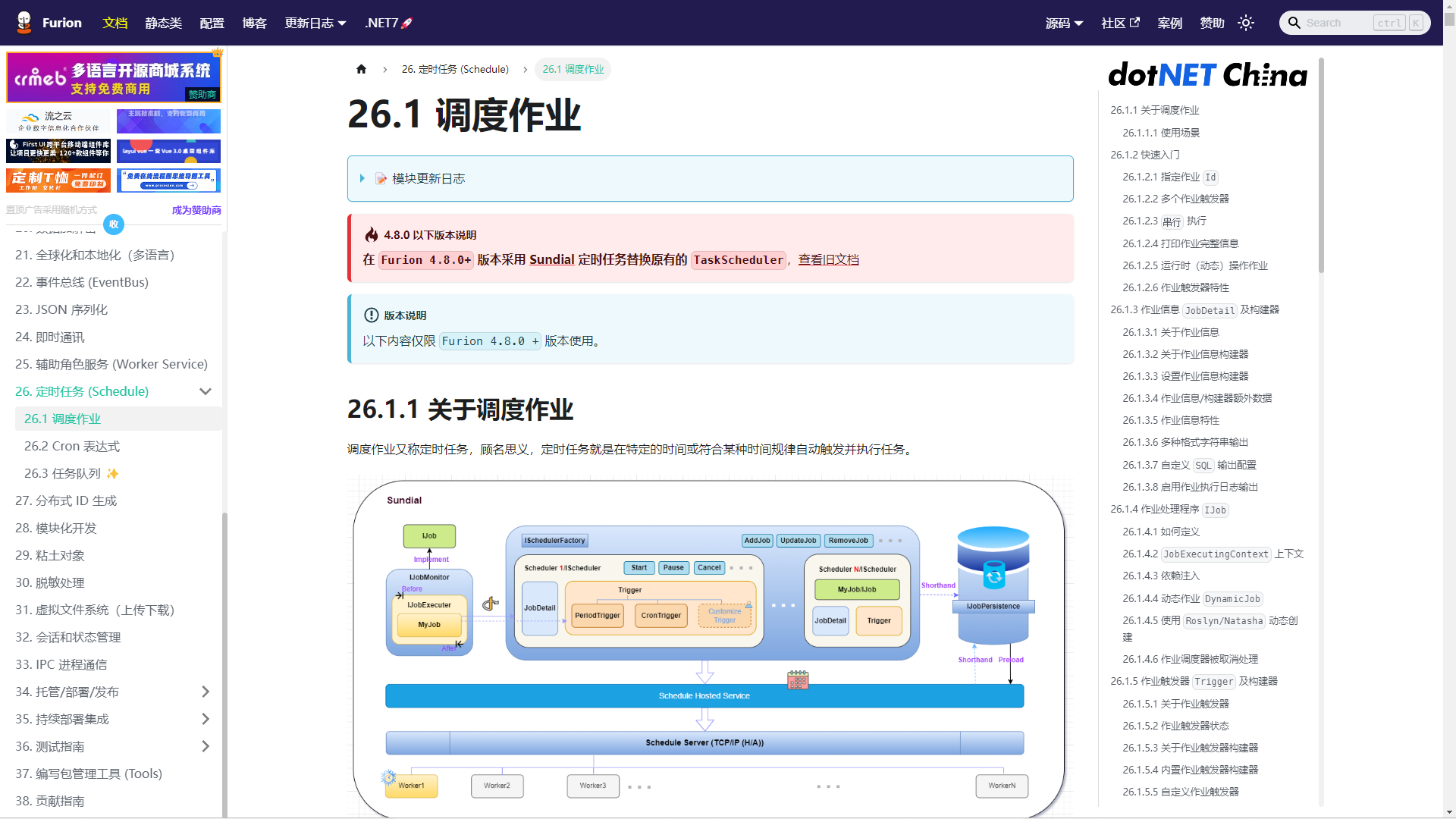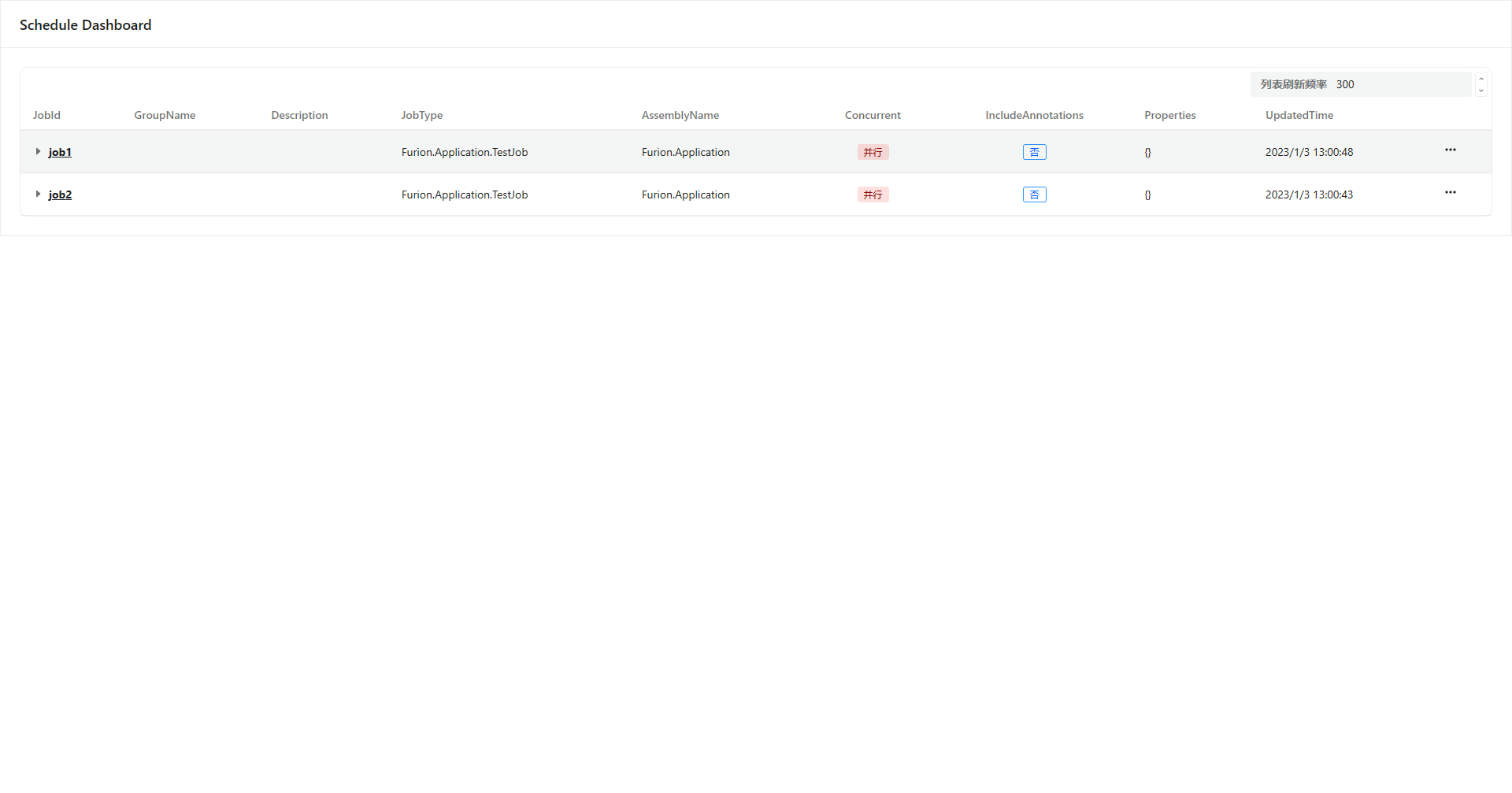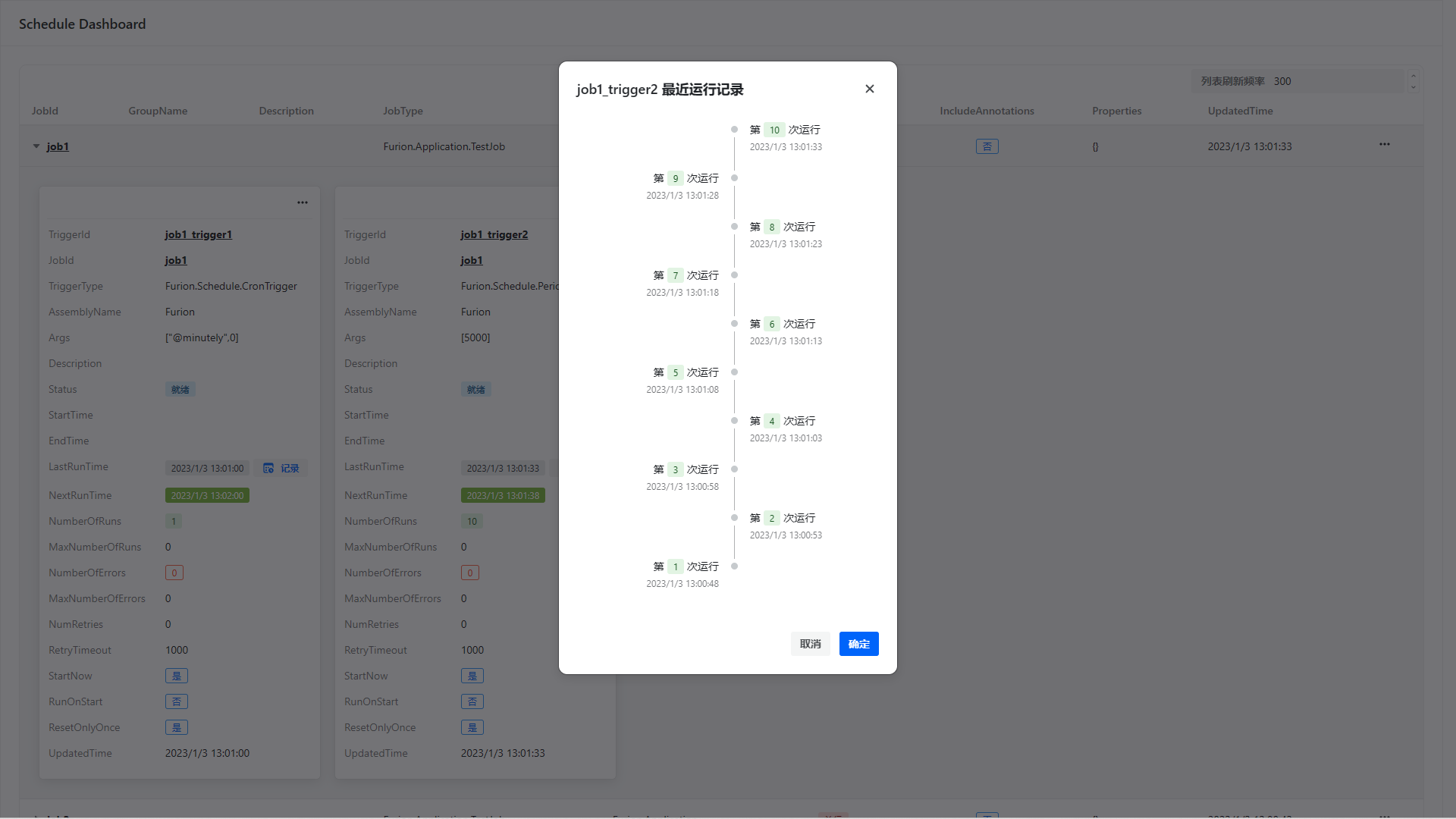.NET A full-featured open source distributed job scheduling system that can be used from the smallest application to large enterprise systems.

characteristic
- Simplify scheduling jobs
- Support Job Monitor
- Support job executor
- Support for custom job storage components (persistence)
- Support custom policy execution
- Built-in cycle, cron job
- Support for custom job triggers
- Support dependency injection control (including HTTP control support)
- High cohesion, low coupling, making the code simpler
- very small, only
41KB - No third party dependence
- available at
Windows/Linux/MacOSDaemon deployment - Support distributed, cluster (multi-instance) deployment
- Support load balancing (based on TCP/IP)
- High quality code and good unit tests
- Cross-platform, support .NET5+
project information
document preview

Embed Kanban functionality
After Sundial v2.6.0+ version, the built-in resource Dashboard Kanban can view the current job running information in real time.
1. Install the Sundial.Dashboard extension package
dotnet add package Sundial.Dashboard2. Register Dashboard UI service
app.UseStaticFiles();
app.UseScheduleUI();
// 还可以配置生产环境关闭
app.UseScheduleUI(options =>
{
options.DisableOnProduction = true;
});3. Open the browser and access the /schedule address



update this issue
- add timed task
DashboardKanban 4.8.4 ⏱️2022.12.30 d3f9669 - Add a scheduled task
DashboardView job trigger recent run record function 4.8.4.3 ⏱️2023.01.03 e7d24d8 - Added timing task job trigger
trigger.GetTimelines()get recent10run record list 4.8.4.3 ⏱️2023.01.03 e7d24d8 - Add a scheduled task
IScheduler.GetEnumerable()method that converts a job plan into an enumerable dictionary 4.8.4 ⏱️2022.12.30 4d5235c
#NET #Distributed #Timing #Task #Sundial #Launches #Dashboard #Kanban #v260 #Released #News Fast Delivery